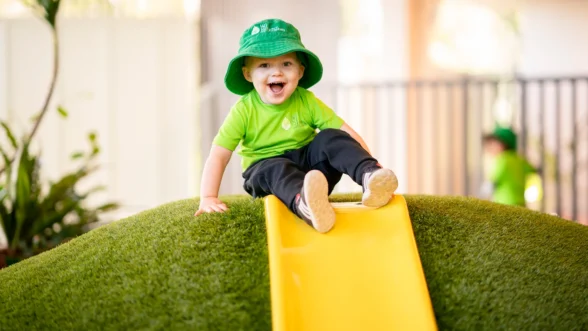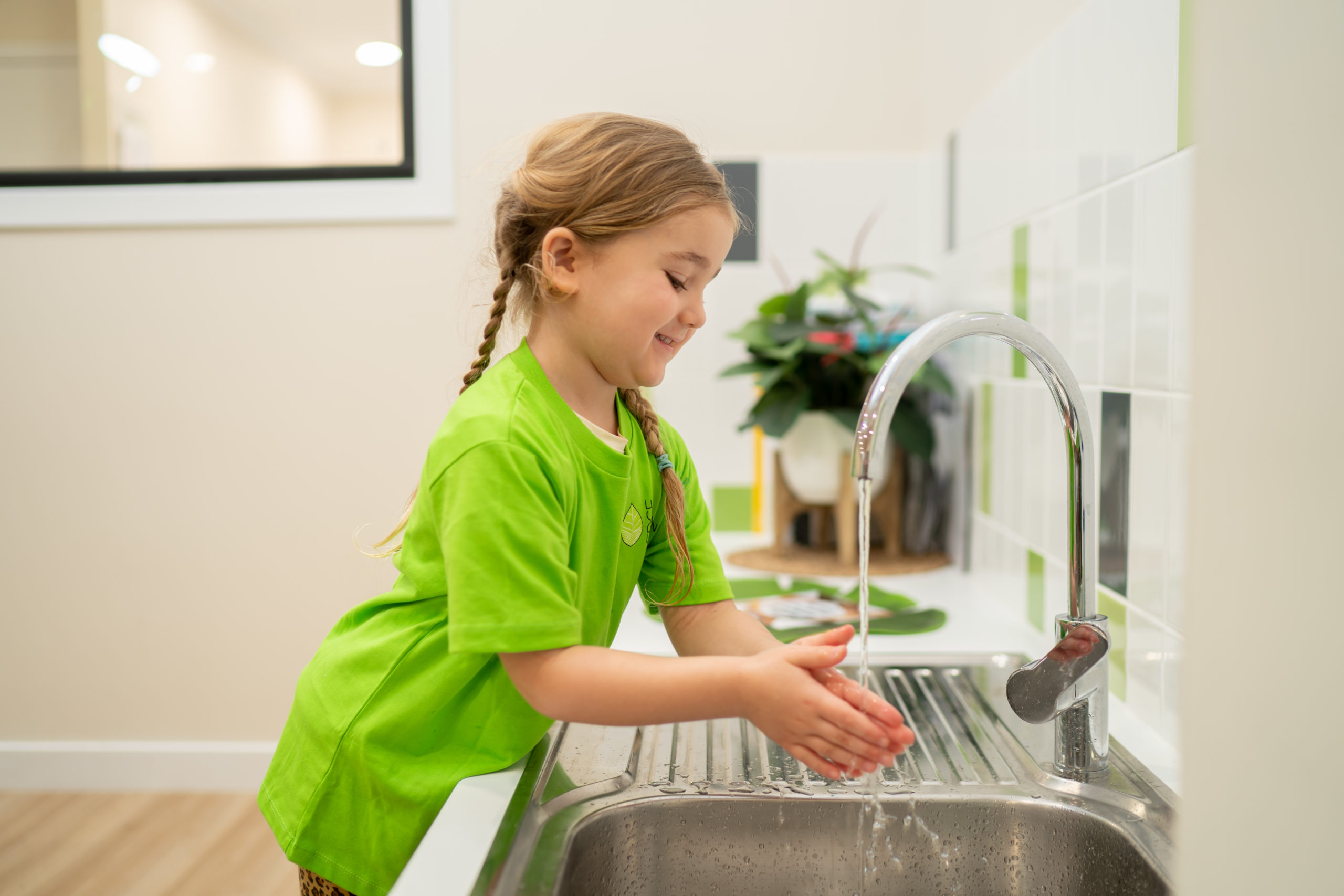
Education, Wellbeing
Useful tools, Wellbeing
08 March, 2026

Hand washing for kids is fundamental not only for good personal hygiene but also for stopping the spread of sickness through germs and bacteria – especially within a childcare environment. Here are a few ‘handy’ tips to keep in mind when teaching your child to wash their hands and the basic steps for washing hands they’ll need to know throughout their childhood and beyond.
Teaching Your Child to Wash Their Hands
While every child is different, there are a few tried and true methods that you should keep in mind when approaching the topic of washing hands for kids. The first is to lead by example, so practice what you preach and wash your hands before eating or cooking a meal, after using the bathroom and after working or playing with your hands. Explain how and why you wash your hands as you do it, then have your child follow suit.
When they follow their hands well or without prompting from you, make sure you praise your child. This could be a simple pat on the back or ‘good job!’ but could also mean giving them a relevant reward – for example, ‘Well done washing your hands! Now we can bake something in the kitchen together’ or ‘You can play on the playground because I know we’re going to wash our hands after, aren’t we?’.
Above all, be patient. It might take a lot of reminding for your child to wash their hands on their own, and they will still slip up occasionally (because even adults do that!). Remember that it takes time for a child to get into the habit of proper handwashing, especially when they can’t physically see any dirt on their hands. Make sure they know that germs can’t be seen, so they need to be diligent – especially knowing that hand washing procedures in childcare must be strictly followed.
When it comes to the key times your child should wash their hands, some will be obvious (after using the toilet) and others not so obvious (after playing outside). Here are a few of the instances where your child should wash their hands:
Now that you know why and when to teach your child to wash their hands, it’s time to learn how (the proper way!). Most people don’t wash their hands properly, so it’s a good idea to teach your child the correct method for how to wash their hands from the start. That means:
For more handy hints about hygiene for kids, check out the below video…
Hand washing isn’t exactly the most exciting topic to talk to your children about, so it helps to have some engaging tricks up your sleeve. Like we mentioned before, singing songs can be a fun way for your child to pass the time while they wash their hands – perhaps they could sing the chorus of their current favourite song instead of the classics like ‘Happy Birthday!’?
At home, you could let them pick out their favourite soap to use – or even make one yourself! There are so many recipes for homemade hand soap online, and it makes for a great weekend craft activity.
Finally, why not print out a colourful hand-washing guide to hang in your bathroom? There are plenty to be found online, but you could also make your own using the tips we mentioned in this article. Use their favourite colours, laminate it and then let them add stickers or drawings around the edges. Having them involved in each step of the process is a great way to help them feel more engaged.
Hand washing is an important way for your child to practice good hygiene, but it’s only the start. Other important hygiene practices your child should be aware of include:
For more good hygiene lessons to teach your children, check out this article.